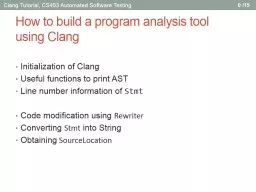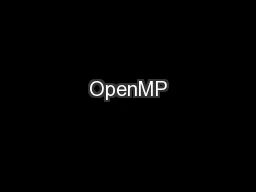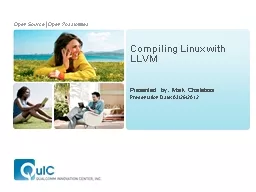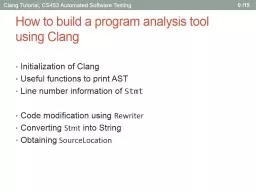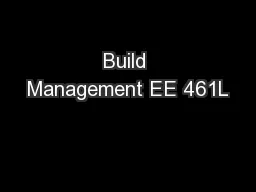PPT-How to build a program analysis tool using Clang
Author : yoshiko-marsland | Published Date : 2017-03-30
Initialization of Clang Useful functions to print AST Line number information of Stmt Code modification using Rewriter Converting Stmt into String Obtaining
Presentation Embed Code
Download Presentation
Download Presentation The PPT/PDF document "How to build a program analysis tool usi..." is the property of its rightful owner. Permission is granted to download and print the materials on this website for personal, non-commercial use only, and to display it on your personal computer provided you do not modify the materials and that you retain all copyright notices contained in the materials. By downloading content from our website, you accept the terms of this agreement.
How to build a program analysis tool using Clang: Transcript
Download Rules Of Document
"How to build a program analysis tool using Clang"The content belongs to its owner. You may download and print it for personal use, without modification, and keep all copyright notices. By downloading, you agree to these terms.
Related Documents

